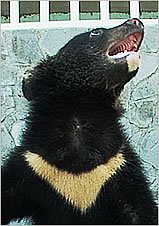這是繼海角七號/九降風/停車 之後
近3個月來看的第4部台灣國片
十幾年來沒看國片了
除了停車不太滿意
[很火大有自慰鏡頭跟九降風一樣──所以也不想去看渺渺,聽說也有漂亮台灣女孩自慰鏡頭,害女主角媽媽不敢去看]
海角七/停車是看首輪院線,九降風跟冏男孩都是看二輪戲院
──停車電影終了時,聽到後座的年輕人大叫一聲「幹!」
因此
不敢再去看其他院線首輪國片[沒信心]
我就知道與醒悟了:台灣國片還是必須與好萊塢的超強多元娛樂片做慘烈競爭
觀影經驗如此豐富的台灣年輕人
台灣每天100多個有線頻道裡
至少有4個西片頻道3個漢語片頻道
天天強力放送至少每天播出五十部以上新舊影片
遑論不斷上映的西片影院
養大了台灣觀影年輕人的胃口
最近幾年
台灣年輕人甚至都不看以前九零年代年年推出賀歲賣座鉅片的港片了
徐克的兩岸都會美女片「女人不壞」票房只上映幾天就下片
竟然只有約50萬台幣
周星星說:
不只是南韓片,連香港片都沒人要看了。林熙蕾好歹也是位美女吧,但《文雀》只賣出兩萬塊而已,終於當上兩百塊的乾妹。
http://blog.yam.com/jostar2/article/19179905
我連文雀都沒聽過報導耶
有網友影評說
1895像是民視娘家連續劇的電影版
還好我沒去看
又有網友觀影後感說
兇魅其實是兄妹
是典型的舊國片──劇情拖拉不好看
目前最滿意的近期國片[看過的,含公視播出的練習曲]
依序只有
冏男孩
海角七號
練習曲
九降風
停車[片中流暢開闊的鏡頭看了很舒服。尤其庹宗華演出的外省黑道老大扭曲嘴角的臉孔,那幕黑道在大街上追捕討債畫面很精采,可惜整體電影線索混亂,黑色喜劇又不夠味,意外被贈送一位小妹妹的溫情畫面,感人但讓人弄不清劇情主軸,桂綸美跟張震的戲實在太少]
這幾部片的台灣導演值得期待
贊成某網友影評所說
2009年台灣國片應該還來不及生產好片
因為2007-2008年核定的輔導金電影還沒產生
恐怕要到2010年台灣國片才有機會證明好片是來到了
所以2009年還是不要冒險看國片
除非真的好評不斷
否則你還是會看到混雜舊國片元素的爛片
這是我看了海角七之後
追蹤3個月的台灣國片訊息
所得到的結論
xxxxxxxxxxxxxxxxxxxxxxxxxxxxxxxxxxxxxxxxxxxxxxxxxxxxxxxxxxxxxxxxxxxxxxx
大人世界是由一堆不負責任的賴皮鬼大人所組成
電影中的大人世界
似乎只剩下一個精神病的騙子一號父親是友善可以信賴的──他會出面拯救小男
孩隱藏起來卻又走失不見的妹妹
但是精神病大人卻又需要小男孩騙子一號餵他吃飯
騙子一號因抗議玩具店老闆,擲石塊破壞玩具店被警察社工人員帶走後[沒交代去向]
騙子2號向騙子一號的精神病父親哭訴
要求寫信給騙子一號在夏威夷的媽媽回來
這個唯一的可以哭訴求救的精神病的大人
僅能拉着騙子2號的小手臂摀著自己的心臟
哭喊著痛,
最後兩人抱著一起痛哭
販賣卡達天王的玩具店老闆
也是善於欺騙小孩的奸商
連他阿嬤也是不負責任──連小妹妹都看不好
連他自己也是任性欺騙妄為
到處闖禍的小孩
身處不友善\充滿敵意的大人世界裡的台灣小孩們
最後不是被送往孤兒院或寄養家庭收容[騙子一號]
就只有尋求往異次元的想像世界去寄託[騙子2號]
台灣小孩們
冀望用十具電風扇吹出龍捲風
把自己吹離這個世界
吹進異次元世界
大人世界最後進入了
卻回不來四處自由遊蕩的小孩世界
電影最後
阮經天飾演的救生員
是個滿身黝黑的金銅色肌膚與健壯肌肉的大人
躺在滑水道頂端的涼椅墊上
向另一個冀望走進異次元世界台灣小孩說
你怎麼知道這個異次元秘密呢
他說爸爸說的
阮經天又如片頭冏男孩一般
圈起自己的手掌當望遠鏡
遠望水樂園裡的景象
彷彿又回到了尼采說的永世輪迴的宿命
──台灣小孩最後只有繼續輪迴在追尋那永不可得的異次元想像世界中
始終只能沉淪在永遠被父母師長奸商欺負的邪惡賴皮鬼組成的大人世界裡
最後長大成人後又始終繼續以異次元世界欺騙我們的下一代!



